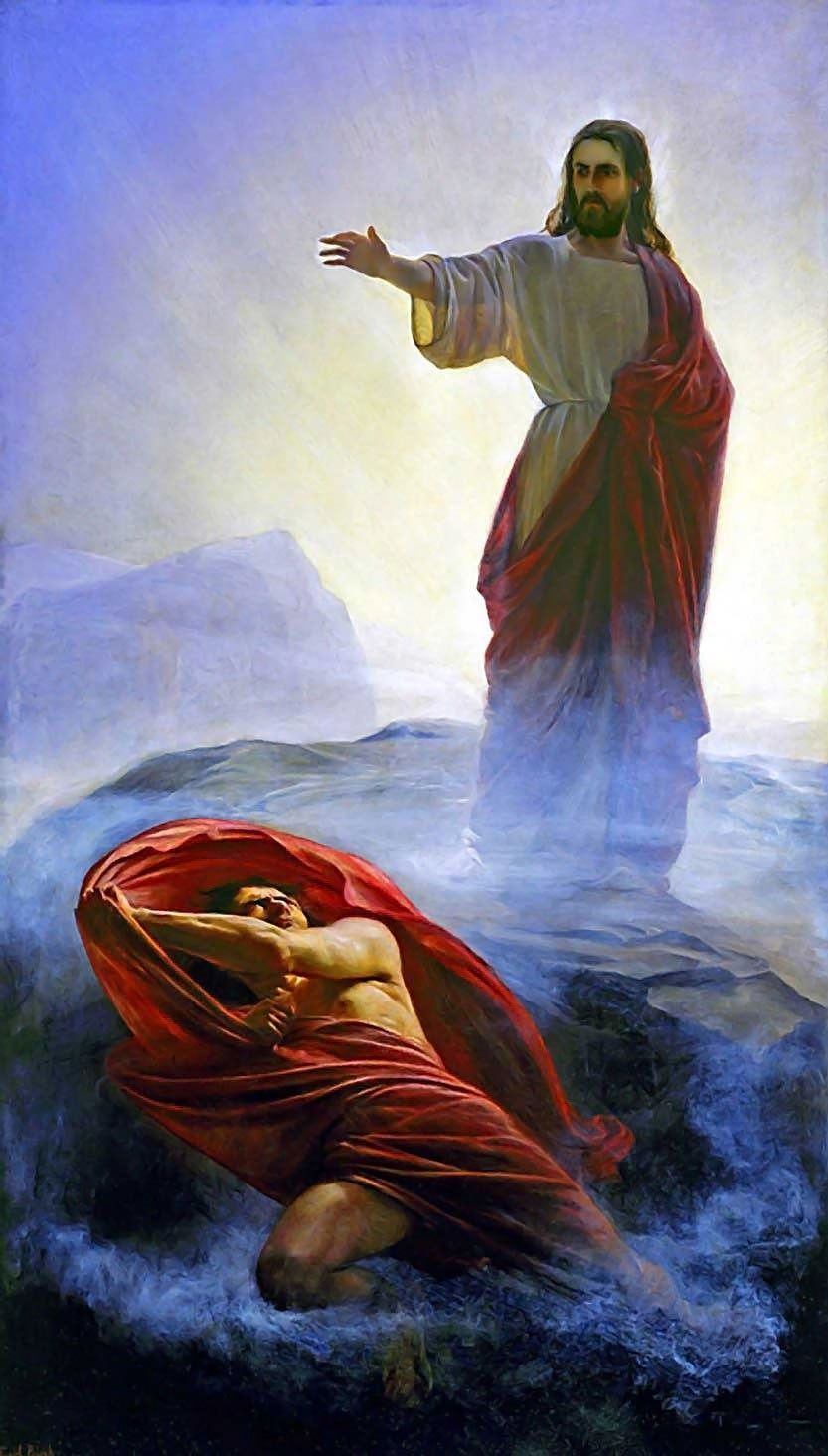
Every 1st Sunday of Lent we encounter the story of Jesus being tempted by Satan in the desert. Traditionally, our understanding of Jesus’ temptations underscores 3 of the vices greatly experienced by humanity: gluttony (turning stones into bread), hubris or pride (throw yourself down from the pinnacle of the temple), and power (Jesus being shown all the kingdoms of the world). Other theologians and biblical scholars including Pope Benedict XVI see the temptation of Jesus as having to choose between being the Political Military Messiah, leading a Jewish army to victory over the Roman army, or being the Pastoral Spiritual Messiah. The way that Pope Benedict states this is that when Satan tempts Jesus, the temptation Jesus faces is choosing either the path of Messianic love and self-sacrifice or a path of Messianic Power and Success.
Note that in the very first sentence of this gospel story, Jesus is LED by the Spirit into the desert. Jesus does not seek out the desert. This is not something he chooses for himself. Deserts in most of the world are barren, nasty places. Against his better judgment Jesus feels this impulse to be pushed and dragged by the Holy Spirit out into the desert. I think it is safe to say, that like Jesus, very few of us willingly seek out the isolation and barrenness of the deserts in our lives. Yet, nonetheless, within our lifetimes we find ourselves in our own particular desert.
What are the deserts in our lives? Like the desert in which Jesus was tempted, they are not very welcoming places. Our deserts often involve pain and sacrifice on our part. The deserts in our lives are so scary and unpleasant that we frequently want to avoid them at all costs. Our desert might be a significant illness, cancer, heart disease, diabetes, Alzheimer’s disease or some chronic illness. The desert might be the loss of a significant relationship. It might be a death or a divorce. Our desert might be the loss of a job, being unemployed for a long time, or some other crises that puts a tremendous financial burden upon us. Our desert might be an addiction of some kind.
While we are in the desert, we, like Jesus, are open and prone to temptation. The three temptations that Jesus faced are placed at our feet. We may feel tempted to believe that God is somehow against us, plotting our ruin. We may feel tempted to turn our back on God or to deny God altogether; to live as if only we are God and only we have power and the ability to control all aspects of our lives. We may succumb to our own base desires, getting drawn into whatever satisfies our senses for the moment, whatever sensual pleasure that might be. Or we might fall into the darkness of despair, believing that God no longer loves us and has abandoned us. Yes our deserts are real and filled with temptation.
However, being in the desert can also be a time of great growth and transformation. It was only in his time in the desert that Jesus was able to define who he was as the Messiah, and what his messianic mission was to be. In March of 2002, I was involved in a head-on collision that led me into the desert of the trauma unit at North Memorial Hospital. Following surgery, lying in a bed, hooked up to all sorts of tubes, the priest for whom I was working at the time, came into my room and asked only one question, “Where is the grace in all of this?” Within our desert lies a tremendous amount of grace if only we allow ourselves to experience it. The desert has a way of emphasizing important beliefs and truths, and exposing the falsehoods or the misconceptions that are a part of our lives. In the desert, we learn to appreciate that which is truly important and essential to our lives and to jettison that which is not. The recovery from that accident took a long time. I spent a great deal of time in the desert, but discovered in so doing the abundance of grace that was present there.
As we are led into this new 40 days of our Lenten desert, let us pray to have the grace to see the potential to grow more authentically as Catholic Christians, and to grow more deeply and authentically in our relationship with Jesus.